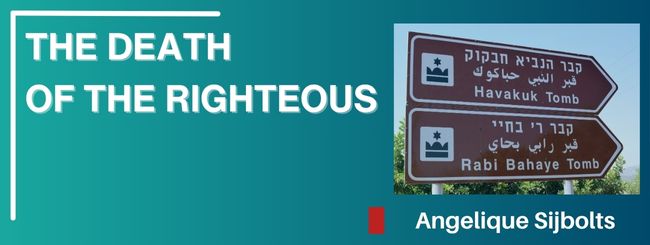בס”ד
A THOUGHT ABOUT PARSHAT BALAK 5785
A Message for the Nations
| 10 Who hath counted the dust of Jacob, or numbered the stock of Israel? Let me die the death of the righteous, and let mine end be like his! | י מִי מָנָה עֲפַר יַעֲקֹב, וּמִסְפָּר אֶת-רֹבַע יִשְׂרָאֵל; תָּמֹת נַפְשִׁי מוֹת יְשָׁרִים, וּתְהִי אַחֲרִיתִי כָּמֹהוּ. |
A Prophetic Wish from an Unlikely Source
These powerful words were spoken by Balaam, a pagan prophet hired to curse Israel. Instead of a curse, he uttered blessings—divinely inspired and spiritually charged. What stands out is his deep yearning: to die the death of the “righteous.”
Why would an enemy of Israel suddenly express such a longing?
Acknowledging Eternal Life
The Da’at Zekenim explains that this statement proves Balaam believed in the existence of an afterlife. At that moment, he spoke with Ruach HaKodesh—the Holy Spirit—and caught a glimpse of the spiritual reward of Israel’s righteous. He recognized their destiny in the World to Come as desirable.
This recognition is vital: it shows that the path of righteousness is universal. Even a non-Jewish prophet acknowledged the eternal value of spiritual integrity.
Righteous Gentiles and the World to Come
The idea that righteous non-Jews also have a portion in the World to Come is firmly rooted in Jewish tradition:
- Rambam (Mishneh Torah, Kings 8:11):
Anyone who accepts and observes the seven Noahide commandments because God commanded them through Moses is considered among the chasidei umot ha’olam—the righteous among the nations—and merits a share in the World to Come. - Midrash (Yalkut Shimoni, Isaiah 429):
“In the future, God will grant the World to Come to the pious among the nations, and they will serve as priests to Him.” - Zohar Chadash (Ruth 96a):
Non-Jews who turn away from idolatry and sin will receive a holy spirit and soul from God and will have their own place in the World to Come—distinct from Israel, yet real and meaningful.
The Yafe To’ar, a classic commentary on Midrash Rabbah, confirms that the resurrection of the dead also applies to righteous Gentiles who accept divine truth.
However, the Talmud (Sanhedrin 90a) adds a crucial condition: only those who accept the belief in resurrection will merit the World to Come. Faith in God’s plan is essential.
A Wish—and a Warning
Returning to Balaam: the Or HaChaim and the Zohar note that his wish was double-edged. He may have hoped to live however he pleased—sinfully, indulgently—and still enjoy the reward of the righteous by repenting at the last moment. A tempting thought, but spiritually dangerous.
Why?
Because true righteousness is not forged on one’s deathbed. It is the result of a life of devotion, moral choices, and connection to God. Balaam desired the reward without the work. That’s not righteousness—it’s wishful thinking.
Pirkei Avot: Living Each Day as Your Last
This idea is echoed and clarified in the words of Rabbi Eliezer (Pirkei Avot 2:10):
“Repent one day before your death.”
His students asked:
“But how does one know when they will die?”
He replied:
“That is precisely why one must repent every day.”
This statement reverses Balaam’s flawed desire. Instead of hoping for a “righteous death,” we are called to live a righteous life. It’s not about a final moment of regret—it’s about daily consciousness and commitment.
For Bnei Noach: No Delay—Only Dedication
This is a powerful and personal message for Bnei Noach:
The path to divine connection is open to all who accept the seven laws of Noah as divine commandments. But that path demands action, not passive belief. Not later—now. Every day brings an opportunity to grow, return to God, and live meaningfully.
Not just to die righteously—but to live righteously.
Final Reflection
Balaam saw the end of the righteous—and he wanted it for himself.
But he didn’t choose to live like them.
We, Jews and Bnei Noach alike, are given the choice:
Not only to die as the righteous,
but to truly live as the righteous.
By Angelique Sijbolts
With thanks to Rabbi Tani Burton for the feedback
© Copyright, all rights reserved. If you enjoyed this article, we encourage you to distribute it further.
Our blogs may contain text/quotes/references/links that include copyright material of Mechon-Mamre.org, Aish.com, Sefaria.org, Chabad.org, and/or AskNoah.org, which we use in accordance with their policies.
